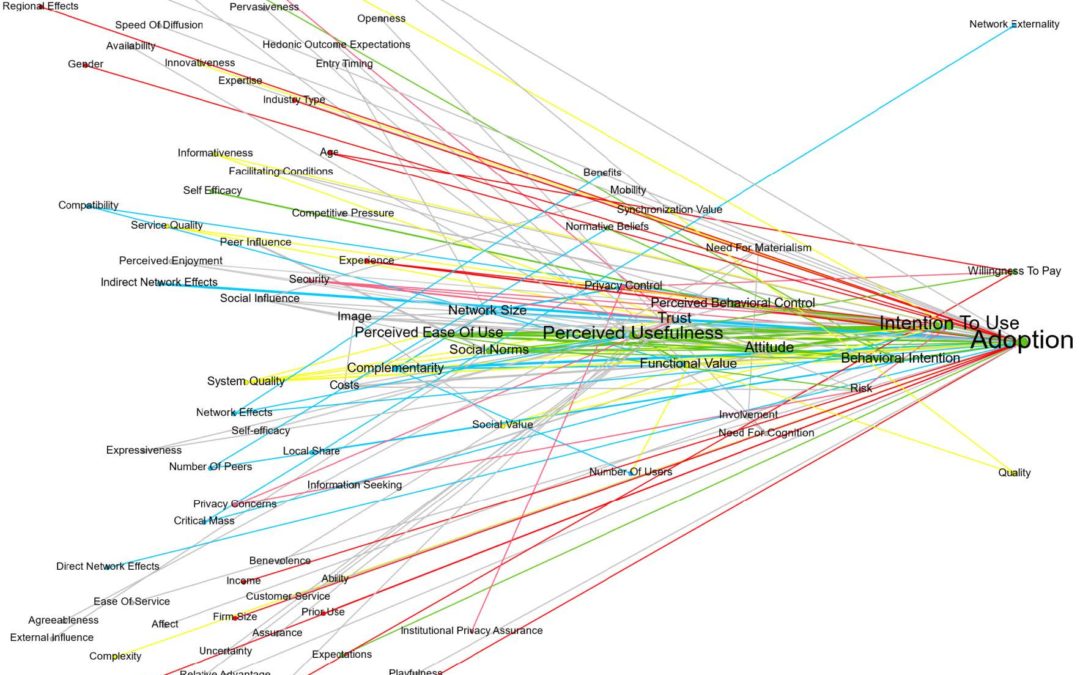Roel Faber, Mark de Reuver (2019)
As digital platforms have become the locus of competition and innovation in the digital economy, it is imperative to understand consumer decisions on adoption and usage. Digital platforms have unique
traits, as they are extensible and often mediate between users. These traits may require understandings to move beyond generic (post-)adoption theories. This paper reviews the rapidly growing body of empirical
consumer studies on digital platforms in order to identify emerging trends in this field. After a structured literature review, we conduct a network analysis using the hypotheses that are supported in the papers. We find a wide variety of over 130 concepts is considered. Factors from generic (post-) adoption theories are often studied, alongside factors related to the concept of network effects. We find differences between the importance of direct, indirect, local and global network effects. We find that studies pay relatively little attention to characteristics that arise from the extensibility of digital platforms, such as openness, control, security and privacy. We posit that IS researchers have the important task of opening up this black box of digital platform characteristics and theorize how notions of extensibility and generativity affect consumer decisions, going beyond mainstream theories on adoption and continuance.
Read the full paper here


